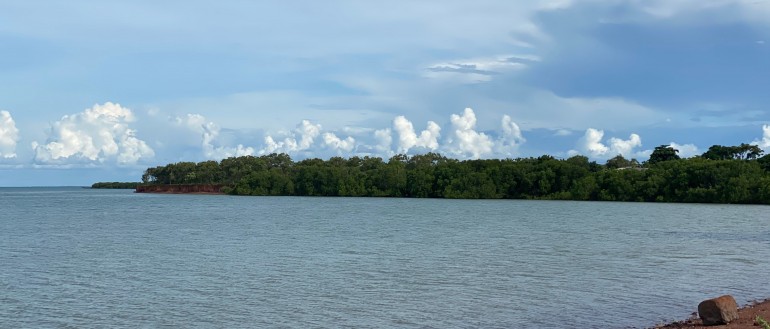The Live Strong, COVID-Safe and frailty free after starting dialysis project works alongside the Top End Renal Services New Start Dialysis Transition Program (NSDTP) to identify ways patients can live well and COVID-safe.
What we know:
We recently reported that Territorians want to access dialysis care close to home. We also showed that Territorians who rely on haemodialysis, also require highly specialised hospital care.
In this project:
Menzies are working with Top End Renal Service to describe how NSDTP is detecting and optimising client fitness, identifying and addressing client knowledge gaps, and optimising health outcomes for adults who recently started dialysis. Furthermore, since 2020, COVID-safe practices have been important for everyone. So, we will also describe the ways clinicians are supporting clients to live strong and COVID-safe while patients continue to access health care facilities, like dialysis services.
Project aims:
Our hypothesis is that a multidisciplinary and frailty-supported model of care, delivered in the NSDTP, supports patient-defined wellness, which can be measured in qualitative feedback and by fewer unplanned hospital admissions over 12 months.
Objectives:
- To describe how staff and patients work together to achieve COVID-safe practices to use at home and at dialysis, and learn from clients about other ways they live strong and COVID-safe.
- To improve detection of frailty and assess change in frailty in the first few months after starting dialysis.
- To count days spent in health care at the RDH campus and dialysis units in the first year after starting dialysis.
Implications for policy and practice:
Top End Health Service, the Study Patient Reference Group and Menzies will work together to define if the NSDTP supports clients to live strong and reduce unplanned hospital admission. Our findings may support opportunities for program scalability across other Australian areas.
Chief investigator:
Project manager
- Sara Zabeen (for more information please contact Sara here)
Start date - end date
1 March 2021 - 1 March 2022
Funders
-
Top End Health Service
-
Australian Partnership for Preparedness Research on Infectious Disease Emergencies (APPRISE) targeted responses to empower First Nations-led research on COVID-19 program, which is funded by the Paul Ramsey Foundation.
Collaborators
- Top End Health Service
- Top End Renal Service
- Curtin University
-

15/06/2021 Mix FM 11am news - renal bus
-

15/06/2021 Mix FM 7:30 news - new renal bus
-

The wheels on the 'culturally sensitive renal bus' go round and round. ABC Radio interview
All aboard the new renal bus! A new culturally sensitive bus which picks up dialysis patients like Tolbert (pictured) and drops them off to a life saving program at Royal Darwin Hospital Renal Unit. So come on! Jump in... we're going for a ride with ABC Radio Darwin and the NT's Fi Poole.
-

New bus for renal patients
RDH renal physician Jaqui Hughes said dialysis patients were more likely to experience severe frailty, fatigue, breathing difficulties, cognitive impairment and psychosocial distress.

